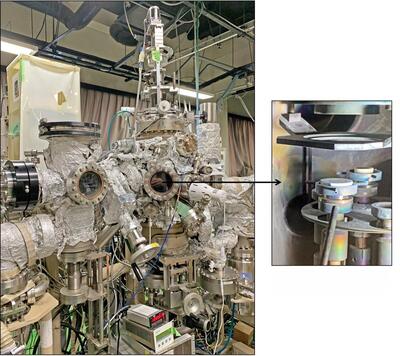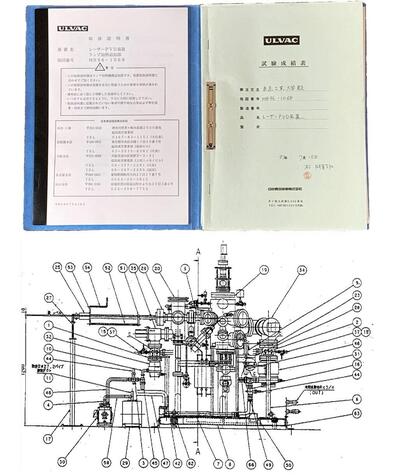News Category
Pulsed Laser Deposition (PLD) Oxide Thin Film Deposition Equipment Registered as "MIRAI Technology Heritage" by the National Museum of Nature and Science
ULVAC, Inc. (hereinafter referred to as "our company") is proud to announce that the "Pulsed Laser Deposition (PLD) Oxide Thin Film Deposition Equipment" manufactured by our company has been registered as an " Essential Historical Materials for Science and Technology (MIRAI Technology Heritage) " by the National Museum of Nature and Science.
Additionally, from September 10, 2024, to September 29, an exhibition titled "MIRAI Technology Heritage Registration Panel Exhibition" will be held at the Ueno Main Building of the National Museum of Nature and Science, where panels introducing this and other registered materials will be displayed.
Comment from the Representative (Head of Research & Development HQ, Junya Kiyota)
Our company upholds the basic corporate philosophy of "aiming to contribute to the development of industries and science by comprehensively utilizing its vacuum and peripheral technologies." Being registered as an " Essential Historical Materials for Science and Technology (MIRAI Technology Heritage)" is a great honor and a testament to our continuous efforts to practice our fundamental management philosophy. We are deeply moved by this recognition and will use it as motivation to continue pursuing further technological innovations.
What is "Essential Historical Materials for Science and Technology (MIRAI Technology Heritage)"?
The "MIRAI Technology Heritage" designation identifies historical materials in Japan that have made significant contributions to the development of science and technology, or that have had a profound impact on the nation's way of life, economy, society, or culture. This initiative has been ongoing since 2008.
Selection Reason
This equipment contributed to the invention of the world's first transparent amorphous oxide semiconductor In-Ga-Zn-O [IGZO] thin-film transistor (TFT), which revolutionized the flat panel display market. It was selected for its outstanding achievements in the fields of materials and semiconductors.
The IGZO-TFTs fabricated using this equipment achieved mobility comparable to polycrystalline silicon in epitaxial crystal films and an order of magnitude higher than amorphous silicon in amorphous films. These research results were reported in Science (2003) and Nature (2004), revealing for the first time the potential of IGZO as a semiconductor.
Furthermore, the equipment has retained its control functions from that time, and the documents and drawings from the time of delivery are still preserved, making it highly valuable to both academia and industry.
Additionally, the "Flexible and Transparent Amorphous IGZO Thin-Film Transistor," which this equipment contributed to inventing, has also been registered as an " Essential Historical Materials for Science and Technology (MIRAI Technology Heritage) " simultaneously. This technology has opened new markets for high-definition LCDs and OLED TVs and has since extended to medical devices and semiconductor memory, driving innovation in the global electronics industry. It is highly regarded as historically significant in the fields of materials science and semiconductor electronics.
External Links
・Essential Historical Materials for Science and Technology (MIRAI Technology Heritage)
・MIRAI Technology Heritage Registration Panel Exhibition
For further information
ULVAC, Inc. web_info

